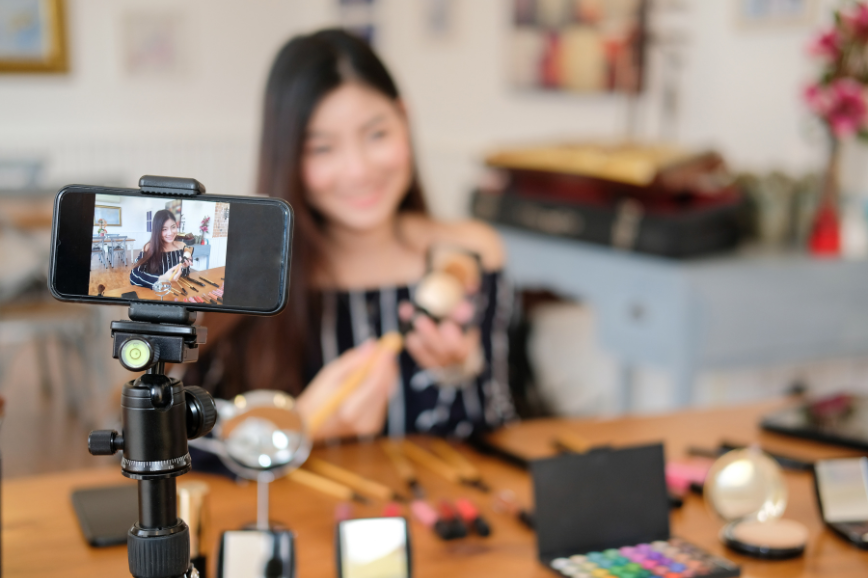AI-Driven Influencer Marketing: Building Authenticity and Trust

Influencer marketing has become a cornerstone of digital advertising, enabling brands to connect with consumers through authentic, trusted content.
The success of this strategy lies in its ability to build authentic connections, as followers trust influencers for their honest, relatable endorsements. However, as artificial intelligence (AI) continues to gain ground, the potential for AI-driven influencer marketing to disrupt this dynamic grows. The introduction of AI influencers, as well as AI-generated ads mimicking real influencers, raises critical questions about trust, consent, and authenticity.
Let’s explore how AI is reshaping influencer marketing, the risks it poses to authenticity, and best practices for leveraging AI while maintaining the trust that your brand and influencer partnerships rely on.
The Rise of AI in Influencer Marketing
Artificial intelligence is transforming many industries, and influencer marketing is no exception.
From predictive algorithms that suggest the most effective content creators to AI-powered tools that generate influencer-like avatars, brands now have more options than ever for reaching their target audience. AI can streamline campaign processes, enhance personalization, and deliver data-driven insights that can optimize influencer partnerships.
However, as AI becomes more integrated into the influencer marketing landscape, brands must tread carefully. AI tools are capable of creating hyper-realistic, synthetic influencers, but some are manipulating existing influencers’ images and voices without their consent. These AI-generated personas may look authentic, but they lack the genuine connection real influencers and creators have with their followers.
The Risk of AI-Generated Content
A recent incident has highlighted the risks associated with AI in influencer marketing. Arielle Lorre, a well-known beauty influencer, discovered that her likeness had been used in an AI-generated video promoting a skincare brand — without her permission. The brand used AI technology to create a video of Lorre endorsing their product, but Lorre had never worked with the brand, never filmed a video for them, and never even used the product being promoted.
The video, which featured Lorre’s image and voice, was shared on social media as part of a marketing campaign. When Lorre found out, she was alarmed, as she had never agreed to the use of her image in this manner. The brand explained that their external agency had sourced AI-generated avatars from an online platform, unaware that Lorre’s likeness had been used without her consent.
This situation raises a major concern: If AI can manipulate content to create videos, images, or entire personas that look and sound like real influencers, how can consumers trust the content they encounter online?
Lorre’s case underscores the potential for AI to erode the authenticity that makes influencer marketing so effective. When consumers feel that they are being misled by AI-generated content, it can damage the trust that influencers have worked hard to build with their audiences.
The Importance of Authentic Influencer Partnerships
While AI offers several advantages, it is essential to preserve the authenticity at the heart of influencer marketing. Real, human influencers and creators build trust by sharing personal stories, experiences, and recommendations with their audiences. This connection fosters loyalty and engagement, a quality that AI-generated content cannot replicate.
User-generated content (UGC) remains one of the most powerful tools in a brand’s influencer strategy. Consumers trust real content from authentic influencers because they know it comes from a place of genuine experience. AI-driven influencer marketing may offer efficiency, but it cannot replace the human connection that drives successful influencer partnerships.
Brands must focus on collaborating with influencers who have established credibility through genuine engagement with their followers. The key is to work with creators who share their true experiences and values, fostering trust in the process.
Best Practices for Navigating AI in Influencer Marketing
1. Prioritize Transparency and Consent
Ensure that all influencers have given explicit consent for their likeness or voice to be used in AI-generated content. Avoid using AI to impersonate influencers or create fake personas that could damage the trust consumers place in your brand.
2. Leverage AI for Optimization, Not Substitution
Use AI to enhance your campaigns rather than replace human influencers altogether. AI tools can help analyze data, optimize campaign performance, and suggest relevant content, but the human element should remain central to your marketing strategy.
3. Ensure Ethical AI Use
If AI is part of your influencer marketing strategy, establish clear ethical guidelines. Be transparent with your audience about when AI is used, and avoid misleading consumers with manipulated content that could jeopardize brand integrity.
4. Work with Real Influencers and UGC Creators
Focus on partnerships with influencers who have built their following through authentic content. UGC creators, in particular, offer an opportunity to tap into real, organic engagement with your target audience.
5. Monitor and Review Content
Actively monitor the content being produced and shared by influencers to ensure it aligns with your brand values. If AI-generated content is used, ensure it’s done ethically and transparently.
The Future of Influencer Marketing in an AI-Driven World
AI is a powerful tool that can drive efficiency and enhance personalization in influencer marketing, but it must be used responsibly. As brands explore the potential of AI-driven influencer campaigns, they must be cautious not to compromise authenticity or the trust that influencers have built with their followers.
The key to successful influencer marketing in the AI age lies in finding the right balance — leveraging AI for optimization while maintaining the human connection that makes influencer marketing so effective. By collaborating with genuine influencers, respecting their image rights, and being transparent about the role of AI, brands can maintain trust and credibility in a rapidly evolving digital landscape.
Are you looking to enhance your influencer marketing strategy? GeistM specializes in performance-driven content marketing and influencer partnerships. Our team can help you navigate the complexities of AI-driven marketing while maintaining the authenticity that fuels consumer trust. Contact us today to learn more!






